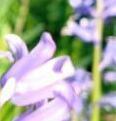TEMA CON VARIAZIONI
-
Ostatnio w Warsztacie
-

Wiechu J. K. 3 174
nadzieja to zużyte bezdźwięczne - jakoś to będzie
wyblakłe, zardzewiałe, nawet nie nudne
nie wiadomo po co - dziwne sny
no koorva, to się zdziwisz
walnie po umyśle
czarny krukwierzę w ciebie świecie bez burz
pozwól mi zetrzeć zapomnienia kurz
w bajecznym nastroju w pąkach dzikich róż
może to początek może koniec złudnych marzeń jużpomimo wszystko żyć się chce
zdziwienie zadziwić może cię
2
-
-
Najczęściej komentowane w ostatnich 7 dniach
-
- 64 odpowiedzi
- 1 255 wyświetleń
-
- 47 odpowiedzi
- 1 051 wyświetleń
-
- 42 odpowiedzi
- 566 wyświetleń
-
- 41 odpowiedzi
- 1 072 wyświetleń
-
- 36 odpowiedzi
- 624 wyświetleń
-











Rekomendowane odpowiedzi
Jeśli chcesz dodać odpowiedź, zaloguj się lub zarejestruj nowe konto
Jedynie zarejestrowani użytkownicy mogą komentować zawartość tej strony.
Zarejestruj nowe konto
Załóż nowe konto. To bardzo proste!
Zarejestruj sięZaloguj się
Posiadasz już konto? Zaloguj się poniżej.
Zaloguj się